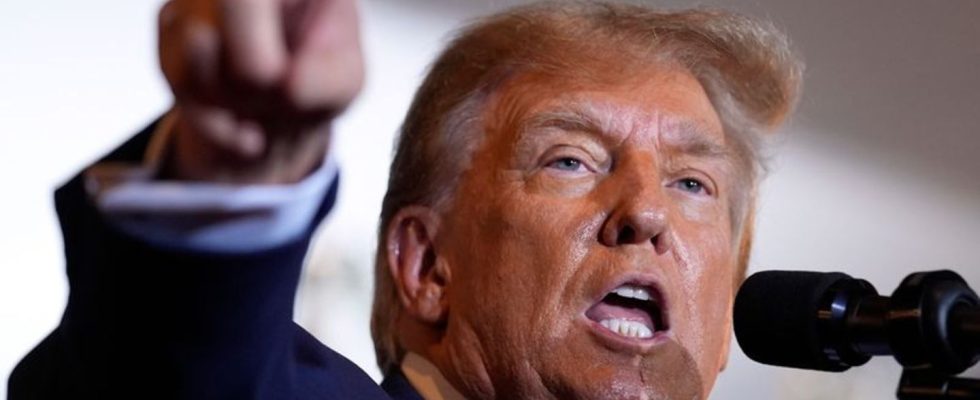Justice
Appeals court: Trump not protected from prosecution
Despite the appeals court ruling, a final decision on former US President Donald Trump’s immunity is still pending. photo
© Matt Rourke/AP/dpa
Can former US presidents be held criminally accountable for their actions while in office? An appeals court says yes. But the last word has not yet been spoken here.
According to one, former US President Donald Trump can Court of Appeals will be prosecuted for his actions in office. With the decision, the court rejected Trump’s request. However, the question will probably only be finally clarified by the country’s highest court. The reasoning behind the appeals court’s decision said the court had carefully weighed Trump’s claimed immunity interests “against the important public interests that favor pursuing this prosecution.”
Trump has suffered a serious legal defeat. But this was to be expected – at a hearing, the appeals court had already appeared skeptical and indicated that it would not follow the arguments of Trump’s lawyers. It can be assumed that the Republican will appeal and the Supreme Court will get involved.
It depends on his verdict whether the trial for attempted election fraud against Trump can be continued in the US capital. The judge responsible had postponed the start of the trial indefinitely until the immunity question was finally clarified on Friday. The 77-year-old wants to move back into the White House for the Republicans after the 2024 presidential election and regularly describes the investigations against him as a “political witch hunt.”
Lawyers cite Trump’s immunity
Trump is indicted in the US capital Washington in connection with attempted election fraud. His lawyers want the charges to be dropped, citing Trump’s immunity in his office at the time as president.
Trump supporters stormed the parliament building in Washington on January 6, 2021. Congress met there to formally confirm Democrat Joe Biden’s victory in the presidential election. Trump had previously incited his supporters during a speech. As a result of the riots, five people died.
A question of national importance
Regardless of the appeals court’s ruling, the question of whether the office of president protects against criminal prosecution is likely to end up before the Supreme Court. After all, it is of national importance. On the one hand, this means that the charge against Trump for attempted election fraud stands or falls. It is also crucial for the election campaign whether Trump is right or not. So far everything points to a new edition of the race between him and the Democratic incumbent Biden. Last but not least, the decision on protection from criminal prosecution has immense importance for future presidents. If they really enjoy immunity, they could commit crimes in office without having to fear consequences.
On the question of immunity, however, Trump’s lawyers argued that the Republican could not be legally prosecuted for actions that were part of his duties as president. Trump’s lawyers also said in court that it is only possible to prosecute a president if he has previously been convicted in an impeachment trial. That is not the case with Trump. They therefore requested that the lawsuit be dismissed and the proceedings discontinued.
The public prosecutor’s office rejected this – and justified this, among other things, by saying that overturning an election result is not part of the official duties of a president. She pointed out that unlimited criminal immunity for a president would open the door to criminal acts of all kinds. She was already proven right in the first instance.
The appeal court has now confirmed this decision. It said it was concluded that public policy concerns, “particularly in light of our history and the structure of our government,” warranted denial of the immunity request. Trump’s view that he should be categorically protected from prosecution for all official actions while in office is not supported by history or the text or structure of the Constitution.

